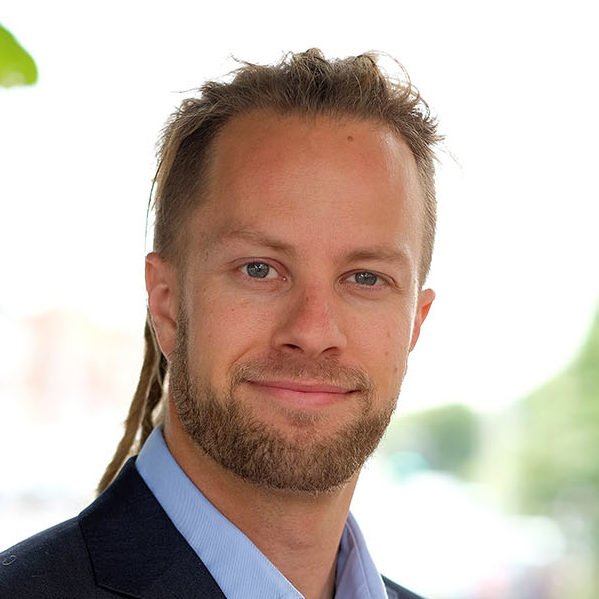Having worked at LifeLine for 19 years now—with 15 years as part of the Senior Management Team and 5 years as CEO—the trustees suggested that I take a sabbatical. When it was first suggested to me, I thought the idea was outrageous. How would the organisation cope? How would I cope? What would I do? Would there be an organisation to come back to? Would I be able to come back?
In effect, I had five months to process and to plan my time. We completed some complicated projects before I left, freeing up our management team, and we restructured to create more management capacity. We worked out an interim reporting structure, set up some meetings where I could keep in touch with the team, and assigned a trustee to act as a first point of contact in case of emergency.
As for me personally, with the help of my business coach and some great friends, I set out some key personal development objectives and a structure to ensure I didn’t get overwhelmed with the sudden expanse of free time. The objectives/structure fit under the following:
Personal development
- Finish my reading list
- Complete the Kent 100km Challenge
- Become a PADI-qualified open water diver
Family time
- Drop and collect my children from school
- Take a family holiday
- Take the children camping on their own
- Go on day trips
Professional development
- Visit other organisations and explore their ways of working
- Attend more professional conferences
This planning and structure meant I could approach the time with confidence and hope.
My sabbatical started off a slow, dull, and somewhat unsettling experience—I had no routine. I felt like a spare part, and it was frustrating. Yet, on a personal level, disconnecting from the digital world was an eye-opener for me. And it brought so many benefits I didn’t expect.
One of the greatest was being set free from the constant distraction of email and social media. My work email was set to out-of-office and left untouched until my return. I kept far from X/Twitter, neither reading nor commenting. Instead, I learned to enjoy the moment—I could look at the photos I had taken; think deep about what I was reading; enjoy the view; pray; think.
It reminded me of my childhood—I’m from that generation that grew up without a digital device in their pocket. Every day felt special; and I’ve always liked living in the moment. I spent more time thinking about my kids and their future and we had some deep conversations due to my availability and attentiveness.
On the professional front, one of things I was looking most forward to during my break was the chance to visit other organisations doing charitable work around the UK. In the end, I visited:
Even though these organisations don’t have the same purpose or aims as LifeLine, it wasn’t hard to find similarities with them. They were carrying out a lot of the same tasks and activities. Like us, they value the people they serve and provide them with excellent customer service. Like us, they listen to their communities and can change and adapt their services to best suit them. And, like us, they support and motivate their colleagues and are full of people who absolutely love working at these organisations.
I have to admit, I’m naturally a glass-half-empty kind of guy. I process negatively. I look at these other organisations and I naturally think, “I wish we were that great”. But the thing I learnt from my visits were that the attributes of these organisations that I was jealous of were due to the decisions they have made that differed from ours.
It’s always tempting to think the grass is always greener on the other side. As I looked at the great work these organisations are doing, I zeroed in on the decisions that lead them there. I reflected on the decisions we had made at LifeLine. And I accepted the different outcomes, becoming more committed to the path we are following at LifeLine. You can’t have your cake and eat it but I’m happy with the cake we do have.
I do find that we don’t spend enough time pondering over issues or problem solving. We spend too much time reacting to problems after they happen, and not enough trying to prevent them from happening in the first place. The challenge comes in adapting to working in a new way as I return to the nine-to-five.
In my opinion, taking a break can be one of the biggest differences you can make for yourself. It grants you the freedom to encounter different ideas and people. It encourages you to think and work differently. Taking time off can help you become more proactive in looking for bold and interesting ideas and solutions. My outlook and attitude to work is different now—I’ve reassessed what I value.
When I was planning this sabbatical, I thought the objective would be to move away from getting ‘bogged down’ in the day-to-day work. I envisaged spending my time looking out at the horizon, envisioning what LifeLine could be in the future, and working out how we, as an organisation, could skillfully build a way to get there, to grow, to be more productive, and to achieve great things for our community. While I did achieve some of those things, the real aim that I didn’t predict was to disconnect. Disconnecting helped me imagine, reflect, ponder, join the dots, and finally connect deeper with my family than I ever thought I could and become comfortable ‘being’ rather than ‘doing’.
When I returned to the office, I was expecting to get straight back into those day-to-day tasks. But my colleagues remained dedicated to the original objective and displayed great dedication in keeping me as free as possible to focus the the future horizon. They were coping just fine—more than fine even, thriving with their new responsibilities. My time-off also gave them the freedom to grow and, in the end, this brought us closer.
Finally, make sure you take time off to unwind with your family, your friends, your colleagues. This will add far more to your life than you might think.
Five key take-aways from my sabbatical
Switching off your phone, forgetting about email and social media, is more than just disconnecting—it leads to connecting in a much deeper way.
Find time to unwind regularly with those you care about.
Look to other organisations, no matter how different they might seem, to see what you can do better.
Share in your work and tasks with your colleagues to create closer ties.
Time-off is a useful tool for exploring bold new ideas and fostering innovative solutions.
My sabbatical reading list
- Rebel Ideas, by Michael Syed—the power of diverse thinking.
- Loving Our Kids on Purpose, by Daniel Silk—parenting through developing a heart connection first.
- Stuck, by Terry Walling—navigating the transition of life and leadership.
- What's Your Point?, by Bruce M. McKinnon—branding in its broadest sense.
- Invitation to a Journey, by M. Robert Mulhollad Jr.—a roadmap for spiritual practices.
- Falling Upward, by Richard Rohr—spiritual requirements for the two halves of life.
- Culture of Honour, by Danny Silk—recruiting the right team and getting them in the correct roles.



